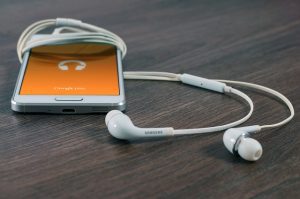There are some great posts in the archives of Life Your Way that don’t get much attention anymore. This week, I’ll be sharing some of my favorites. Whether you’ve been around since the beginning or are a new reader, I think you’ll enjoy them! When you have children, you may go for several years with sleep deprivation until they can sleep through the night.
At three years old, our youngest daughter is finally sleeping through the night consistently, but I remember the years of sleep deprivation well. Here is my advice for surviving those sleep-deprived phases, written during that long, sleepy period of my life:
We’ve all heard that getting enough sleep is an important part of living your best life and staying productive and healthy…but what about those times when getting sleep is out of your control? Maybe you have a newborn or a sick child, or maybe you’re working two jobs to make ends meet.
Here are my tips for surviving a sleep-deprived season, shared from the trenches:
Table of Contents
1. Scale back your commitments.
This isn’t new advice, but it’s worth repeating: If you aren’t getting enough sleep because of things outside of your control – such as a child who is not sleeping regularly or a medical condition – focus on the things that are within your control. Scale back your volunteer activities, the projects your tackling around the house and even the fun opportunities that come your way until you’re sleeping better and able to handle the extra commitments!
2. Use caffeine wisely.
I’ve always been wary of using any chemical to alter my mental state, but with a full-time job, four little ones and several middle-of-the-night feedings a night, I’ve found that caffeine is a crutch I’m just not ready to give up at this stage of life. That said, I don’t want my body to become so dependent on it that I’m unable to function otherwise, so I try not to drink coffee on the weekends even when I hit my midday slump.
For me, it also means that I start my day without coffee (but I’m naturally a morning person, so that may not work for everybody) and pour myself a cup around lunch when I start really slowing down and having trouble concentrating.

3. Plan your meals and snacks carefully.
There are plenty of natural sources of energy besides caffeine that work just as well, if not better. Eat a protein-rich breakfast, drink lots of water and try eating an apple when your energy level starts to drop. Most importantly, avoid refined sugar. This is easier said than done, as many people crave sugar and sweets when they’re tired, but they’ll just leave you more tired and craving more.
4. Take naps when possible.
I know, I know. This is easier said than done for most people, but there’s something to be said for perfecting the art of the 20-minute power nap. I wrote a paper in college on the increased productivity of workers who took a nap each day, and the research in this area really does promote taking short naps to increase energy, awareness and productivity.
Unfortunately, while many countries still practice daily siestas, having a sanctioned nap time isn’t realistic for many of us – whether we stay at home with our kids or work outside of the home – so you may have to get creative to find time for your nap!
5. Plan your schedule around your natural rhythms.
When are you the most energetic and alert? Plan tasks that require concentration during these times. During the times you normally feel sluggish, plan activities that get you on your feet and moving around to get your blood moving and increase your energy. In this way, you’ll be able to capitalize on your high-energy times and make use of the lower energy times rather than staring blankly at the computer screen when your body just won’t cooperate or wasting your best hours on routine tasks.
6. Prioritize your to-do list.
Lastly, take a look at the things on your plate that you’ve determined to be non-negotiables and prioritize them to make sure you don’t fall prey to the tyranny of the urgent and leave the most important things undone.
7. Use a sensory blanket
How do you handle sleep deprivation?




